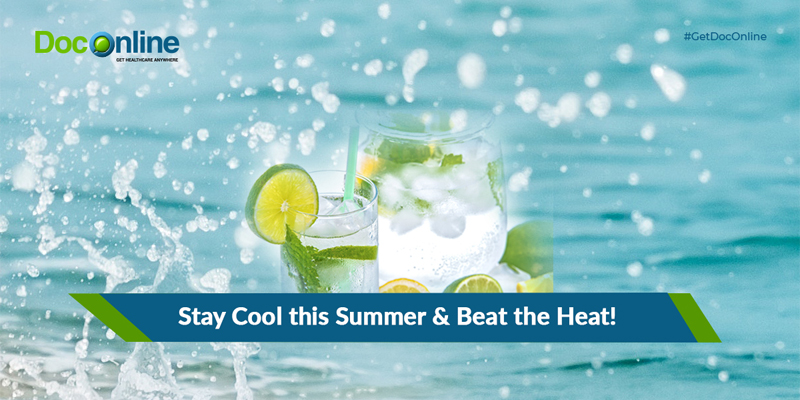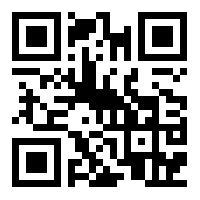Come April and May, the summers are knocking at the door. While we surely associate the summers with holidays and loads of fun with family and friends, one also needs to ensure certain precautions to prevent falling ill during the season, which is quite common.
It’s getting hot! Summer comes with its share of concerns - too much of exposure to the heat and playing in the sun can leave you exhausted and make you susceptible to heat strokes. Let us understand how the body reacts to such heat.
The Human Body & Hot Environment
The healthy human body maintains its internal temperature around 37°C. A change of body temperature of more than 1°C occurs only during illness or when the environmental conditions are more than the body's ability to cope with the extreme heat.
As the environment warms-up, the body tends to warm-up as well. The body's internal "thermostat" maintains a constant inner body temperature by pumping more blood to the skin and thereby, increasing sweat production. In this way, the body increases the rate of heat loss to balance the heat burden. In a very hot environment, the rate of "heat gain" is more than the rate of "heat loss". As a result, the body temperature begins to rise. This increase in body temperature causes one to fall ill.
What are the illness caused due to heat?
Heat edema is a swelling, which generally occurs among people who are not acclimatized to working in hot conditions. Swelling is often most noticeable in the ankles. Recovery occurs after a day or two in a cool environment.
Heat rashes are tiny red spots on the skin, which cause a prickling sensation upon exposure to heat. The spots are the result of inflammation caused when the ducts of sweat glands become plugged.
Heat cramps are sharp pains in the muscles due to salt imbalances resulting from the failure of salt replacement lost through sweat. Cramps mostly occur when people drink large amounts of water without sufficient salt (electrolyte) replacement in it.
Heat exhaustion is a condition where the body overheats due to excessive exposure to high heat over a period of days, accompanied by dehydration. High humidity and strenuous physical activity can also contribute to heat exhaustion. Heat exhaustion can cause cramps, heavy sweating, headaches, nausea, giddiness and rapid heartbeat. If not treated, body temperature could continue to rise, escalating into a heat stroke.
Heat stroke is the most serious type of heat illness. Signs of heat stroke include body temperature often greater than 41°C, and includes complete or partial loss of consciousness. Sweating is not a good sign of heat stress as there are two types of heat stroke. These are
- "Classical" Heat Stroke: There is little or no sweating. It usually occurs in children or people who are chronically ill and among the elderly).
- "Exertional" Heat Stroke: The body temperature rises because of strenuous exercise or work. It is usually accompanied by profuse sweating. Living in urban areas can add to the likelihood of its occurrence because of the poor air quality.
Heat stroke requires immediate first aid and medical attention. Heat exhaustion may quickly develop into heat stroke. Delayed treatment may result in death.
SYMPTOMS
The symptoms of heat stroke include:
- Hot, dry skin or profuse sweating.
- Confusion.
- Loss of consciousness.
- Seizures.
- Very high body temperature.
PRECAUTIONS
Following are some effective ways to beat the heat:
- Keep yourself hydrated – The most basic prevention is to drink lots of water, even on days that don’t seem that hot. This is all the more important if you are into strenuous exercise or are working outdoors. So, drink before, during and after the activity.
- The drinks that should be consumed to prevent heatstroke are onion juice (considered as the best remedy for treating heat stroke), tamarind juice, aam panna, buttermilk, coconut water, juice of mint and coriander leaves, aloe vera juice and tulsi and fennel seeds.Drinking lime water helps to retain the salt ion concentration in the body. Apple cider vinegar is also very good and should be regularly taken during summers.
- Avoid unhealthy foods and drinks – Restrict or completely avoid alcohol intake during the summer because they dehydrate the body and mess with its temperature control mechanism. Caffeine is also a diuretic and is best avoided.
- Dress well – Wear loose fitting, light coloured clothes in natural fabrics that allow the skin to breathe and helps to cool the body.
- Stay indoors – Try to stay indoors during peak hours, i.e. 10 A.M. to 4 P.M. When going out, carry an umbrella or wear a hat or scarf to protect your head from direct heat.
- Use Sunscreen – Wear sunscreen to avoid sunburn, which in turn affects your body’s ability to deal with the heat.
- Keep yourself fit – Try to exercise early in the morning or late in the evening to cut down the risk of heat exhaustion due to dehydration in the strong heat.
Thus, face the summer heat by staying cool and spread awareness on how to prevent heat-stroke.
Looking for Doctor's Advice?













